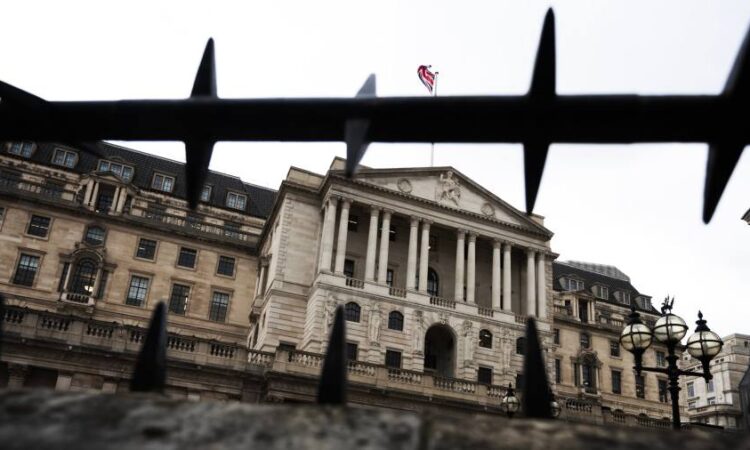
The Bank of England’s independence has withstood 25 years of economic shocks but is not necessarily proof against “political vandals”, two key architects of the UK’s monetary and fiscal framework said on Tuesday.
Former Tory chancellor George Osborne told the House of Lords economic affairs committee that he saw no need to make substantial changes to the monetary policy arrangements put in place by the previous Labour government when he took office in 2010. But he stressed that they relied on good working relations between the principal actors.
“You can prescribe in legislation all sorts of frameworks . . . but if the individuals concerned don’t make it work, you are going to start grinding through the gears of the British constitution,” he said. “I think you saw that last autumn.”
Osborne’s comments were a reference to the turmoil unleashed in financial markets in September last year when Liz Truss, then prime minister, announced £45bn of unfunded tax cuts, after openly criticising the BoE and refusing to publish the usual forecasts from the Office for Budget Responsibility.
Osborne, who created the OBR to serve as an independent fiscal watchdog, said the crisis had marked “the first time in 25 years” that the UK had a government that was not committed to the central bank’s independence.
As chancellor, he said, he had regularly met the BoE’s governor over “old school” dinners, with no agenda or minutes, where he would sometimes float Budget measures he was considering and receive advice on their likely implications for monetary policy.
If anything, last autumn’s events showed that the OBR’s independence should be bolstered to give it a similar standing to that of the BoE, Osborne argued, with powers to determine when it published forecasts and request information from the Treasury.
“I would learn from that experience . . . and find ways to make the OBR more independent in the face of political vandals,” he said.
Ed Balls, who as a Labour special adviser drew up plans for the monetary policy framework introduced in 1997 by then chancellor Gordon Brown, gave the Lords committee a similar message on Tuesday.
He said the UK’s monetary and fiscal framework had survived “a whole series of shocks” and had almost failed only “when politics looked like it was throwing into doubt the proper operation of the framework”.
However, Balls said the jury was “still out” on whether the arrangements to ensure financial stability, put in place by Osborne following the 2008-09 financial crisis, worked as well as the monetary framework.
The remit given by ministers to the BoE’s Financial Stability Committee was inherently less clear-cut than the Monetary Policy Committee’s 2 per cent inflation target, Balls said, making it more difficult to hold the FPC to account and scrutinise the impact of its decisions.
Balls said this mattered because the FPC was operating in politically contentious territory. He added that there was also scope for tensions to emerge in future between the different central bank officials with lead responsibility for monetary and financial stability.
Osborne argued that the FPC had proved a “very valuable addition” and that his reforms had allowed the BoE governor to manage trade-offs between monetary and financial stability objectives.
But he agreed that the FPC’s decisions had “real-world consequences” for millions of people on mortgage affordability and home ownership, and that there was a need to make its work more transparent and subject to scrutiny.








